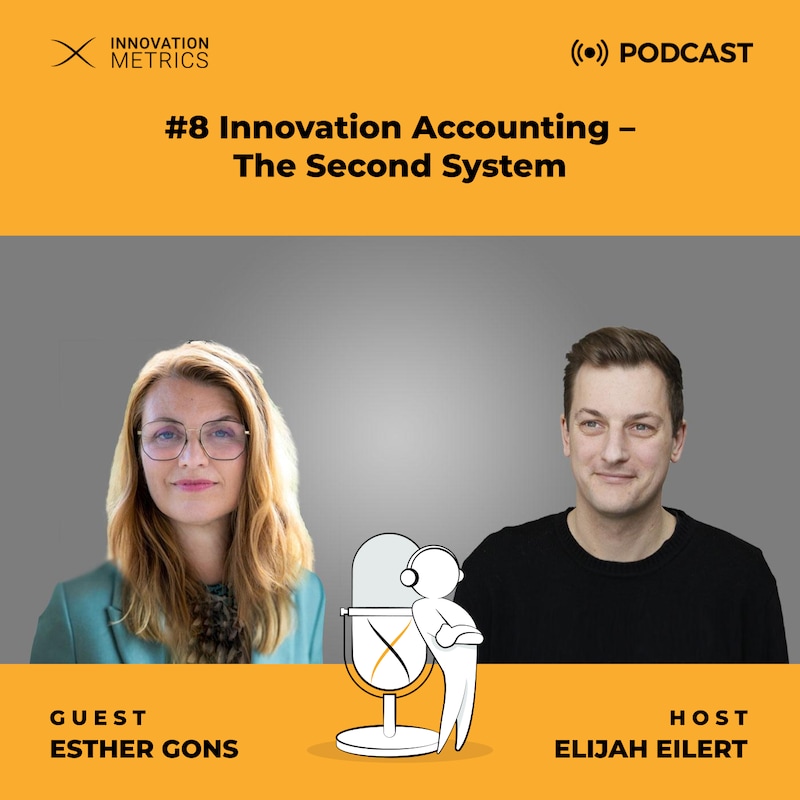01:00 Introducing Esther
03:00 Esther's reasons for writing the Innovation Accounting Book include finding an answer to corporates hindering governance structure to transformational innovation by outlining a second system that operates in parallel to the core.
06:00 On the process of writing a book and, moreover, a book that is pushing the boundaries.
09:30 Defining innovation accounting
“The tools, processes and systems an organisation needs to monitor the progress of high-risk disruptive ventures”.
This is more than just a set of indicators, it is several levels of governance indicators to enable decision-making. The three core layers of innovation accounting abstract information to the one above.
The three core layers of innovation accounting as defined in the book are
Tactical Innovation Accounting
Managerial Innovation Accounting
Strategic Innovation Accounting
Interlinked, but not in a way that information can be abstracted as directly to the higher level, are
Innovation Accounting for Shareholders
Innovation Accounting for Culture and Capability
12:30 How innovation accounting can help shareholders value innovation efforts
15:30 Innovation success depends on the number of bets a company can place. Companies need to test at least 50 ideas in their funnel and increase confidence about or kill them early on. As Tendayi Viki says
“You can not pick the winners!”
20:30 High-risk new business models take a long time, often 5 - 12 years. Startups often look like an overnight success but that is rarely ever true.
How empathy is often a desired trait of innovation teams engaged in building better products. It is also needed by innovation managers for senior leadership and shareholders, in order to build a better system
24:00 Accounting must evolve when it becomes insufficient for what it has to account for and model
25:00 How to get CEO’s and CFO’s to accept and get used to different measures
29:00 The differences between an innovation funnel and an innovation portfolio or pipeline, and the importance of being internally aligned in defining them
32:00 Innovation Portfolio vs Portfolio
40:30 How often should CEOs be involved in portfolio management, and how often they need to look at the dashboard - as so often it depends
42:30 The funnel is the execution of the innovation strategy
43:00 Innovation accounting should be a part of business intelligence
44:30 People from corporate accounting, controlling and governance are reaching out to Ester to better understand how they can provide value to the company in this space, specifically as more and more of what they are doing is getting automated.
46:30 The future job profiles of innovation accountants and bookkeepers
49:00 Esthers vision for innovation accounting in 10 years
“As an accepted system for high-risk search that has its own place possibly within the accounting function of corporate.”

